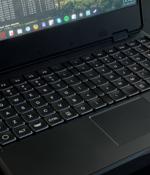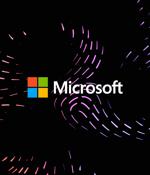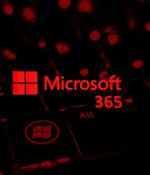Security News

A new, redesigned, and faster Microsoft Teams application is generally available for all Windows and macOS users starting today. As revealed when the new Teams was made available as a preview release in March, the new client will launch three times faster, enabling users to switch between chats and channels up to 1.7 times faster than the Classic Teams app.

Microsoft research says that 80-90 percent of ransomware attacks over the past year originated from unmanaged devices. The threat BYOD presents is compounded by the steep rise in overall ransomware incidents this year; Microsoft says human-operated ransomware attacks are up by more than 200 percent since September 2022.

Hackers have been observed trying to breach cloud environments through Microsoft SQL Servers vulnerable to SQL injection. The attacks Microsoft observed start with exploiting an SQL injection vulnerability in an application in the target's environment.

Microsoft has detailed a new campaign in which attackers unsuccessfully attempted to move laterally to a cloud environment through a SQL Server instance. "The attackers initially exploited a SQL...

Users are now encouraged to take a break and indulge in a surfing game while waiting for their systems to update, as first spotted by The Verge while installing Windows 11 on a Surface Laptop Studio 2. Initially launched in May 2020 when bundled with the Microsoft Edge web browser, the Surf game is a modern rendition of the classic SkiFree game, part of Microsoft's Entertainment Pack 3 for Windows 3.0, released in October 1991.

Microsoft released emergency security updates for Edge, Teams, and Skype to patch two zero-day vulnerabilities in open-source libraries used by the three products. The libwebp library is used by a large number of projects for encoding and decoding images in the WebP format, including modern web browsers like Safari, Mozilla Firefox, Microsoft Edge, Opera, and the native Android web browsers, as well as popular apps like 1Password and Signal.

A recently uncovered phishing campaign is targeting Microsoft 365 accounts of key executives in U.S.-based organizations by abusing open redirects from the Indeed employment website for job listings. In August 2023, Proofpoint warned of another EvilProxy campaign, which distributed approximately 120,000 phishing emails to hundreds of organizations, targeting their employees' Microsoft 365 accounts.

Recent versions of the TorBrowser, specifically because of the updated tor. Microsoft stated, "We've reviewed the submitted files and have determined that they do not fit our definitions of malware or unwanted applications. As such, we've removed the detection."

Microsoft has resolved a known issue that caused Outlook Desktop to unexpectedly prompt users to reopen previously closed windows. On affected systems, users of Outlook for Microsoft 365 were encountering dialogs with prompts like "Outlook closed while you had items open. Reopen those items from your last session?".

Microsoft introduced its Bing Chat AI search assistant in February and a month later began serving ads alongside it to help cover costs. Security outfit Malwarebytes said on Thursday it has identified malvertising - harmful ads - distributed via Bing Chat conversations.